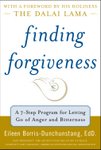Today is the day that Tiger Woods is to give a statement and ask for forgiveness for his transgressions. There will probably be a great deal of speculation about Tiger's sincerity. As I was thinking about this my thoughts drifted to the movie "invictus," and to the poem below. I cannot judge what is going on inside of Tiger Woods. All I can say is that change and growth must start from where we are. Forgiveness is an act of courage, helping as realized that we do have strength within ourselves. Forgiveness can be very freeing, and it heals both victim and offender. When we listen to Tiger Woods we should not just be observers, reacting to what is being said. Let him remind us that we too can initiate forgiveness in our own lives. As the poem Invictus says, "I am the master of my fate: I am the captain of my soul." We all make a difference in this world and our words and actions affect others. We should focus on being the captain of our soul and face our challenges and not judge others. By practicing forgiveness with sincerity in our own lives we are given the ability to soar above our difficulties. Let us hope that this gift is given to Tiger Woods as well.
Invictus
By William Ernest Henley
Out of the night that covers me,
Black as the pit from pole to pole,
I thank whatever gods may be
For my unconquerable soul.
In the fell clutch of circumstance
I have not winced nor cried aloud.
Under the bludgeonings of chance
My head is bloody, but unbowed.
Beyond this place of wrath and tears
Looms but the Horror of the shade,
And yet the menace of the years
Finds and shall find me unafraid.
It matters not how strait the gate,
How charged with punishments the scroll,
I am the master of my fate:
I am the captain of my soul.
For more information on how to forgive and to be inspired by others who have been able to forgive please go to "Finding Forgiveness: A 7 Step Program for Letting go of Anger and Bitterness." If you want to learn more about forgiveness you can also visit my website www.dreileenborris.com.


